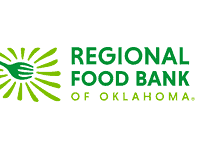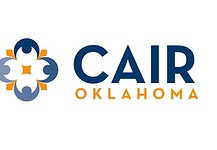Last Updated on March 25, 2024, 8:39 AM | Published: March 25, 2024
Calm Waters Center for Children and Families sends this information as posted below:
OKLAHOMA CITY, OK, March 20, 2024 – Calm Waters Center for Children and Families, the only grief center in Oklahoma City offering free grief support services to the entire family, has launched a new program in partnership with OU College of Medicine to provide grief-focused mental health support and education. The program includes grief psychoeducation workshops for medical students and weekly grief support groups for medical residents.
Calm Waters has served Central Oklahoma for 32 years and is recognized as the foremost grief expert in the region. In early 2023, Dr. Katie Smith, MD, MS, OB/GYN, approached Calm Waters to establish a program within the OU College of Medicine to support and educate medical students and residents regarding grief. As faculty at the college, Dr. Smith sees the harmful impact of grief on her colleagues every day, especially among students and residents.
“The current generation of medical students and residents are no longer willing to simply push forward, but request support to help them continue through their program whilst experiencing high levels of stress and/or trauma,” said Smith.
According to conversations with the OU College of Medicine faculty, the new era of doctors recognizes that burying grief is harmful for both the provider and their patients. They want to create a new working culture that encourages healthy expressions of grief and discourages the emotional compartmentalization that leads to compassion fatigue and burnout.
In January 2024, Calm Waters launched a new program at OU College of Medicine, Grief Support Groups and Education for Medical Professionals. Medical students and residents are highly motivated to receive education and support related to the trauma experienced in their programs and future careers.
Calm Waters provides Grief Education Workshops to medical students, in which students receive research-based, custom-written psychoeducation related to grief. Additionally, they learn how learn how to support someone through a loss, deliver sensitive information to patients and their families, and how to balance their physician responsibilities with empathy and compassion. Calm Waters has provided two workshops since January.
“I think hearing some different and more sensitive language about grief was really helpful,” said one participating medical student. “And [hearing] different examples of what grief can look like for different scenarios was really affirming too.”
Through this program, Calm Waters also provides Grief Support Groups to medical residents, in which up to 12 participants will meet weekly for nine weeks. They have a confidential place to discuss their grief relating to patient losses, support their peers through traumatic outcomes, and feel empowered to continue practicing medicine.
In studies of the impact of grief support on medical providers, participants reported increased comfort levels in having conversations with patients and families about grief and loss, as well as enhanced knowledge on the importance of effective communication. Participants in this type of grief support and training also reported gaining a more profound understanding of their personal attitudes and beliefs on death and dying, which led to a more compassionate level of care. (Helping Health Care Providers and Staff Process Grief Through a Hospital-Based Program, AJN, July 2019, Vol. 119, No. 7).
Calm Waters CEO, Erin Engelke, was excited about this program from initial conversations with OU College of Medicine faculty. Every element of the program was designed to support the mental health of medical professionals, as well as lead to improved patient experiences.
“Often, a conversation with a physician marks the moment one’s grief journey begins,” said Engelke. “However, the physician has to continue from that conversation to the next patient’s room, focused and ready to meet that patient’s medical needs, which may be just as dire. Imagine how difficult that must be – to bury those feelings in instant – grief, but also guilt, frustration, anger, self-doubt. By educating medical students on providing bad news, as well as teaching them the coping skills to handle their grief from a loss, there is a new system of mental health support that didn’t exist before.”
Funding for Grief Support and Education for Medical Professionals was provided by United Way of Central Oklahoma, through the WayFinder Innovation Grant.
Free Press curates press releases from organizations and people we know to be reputable. If you would like to submit a well-written press release for us to publish on our site, please click the email icon at the top of this page.











